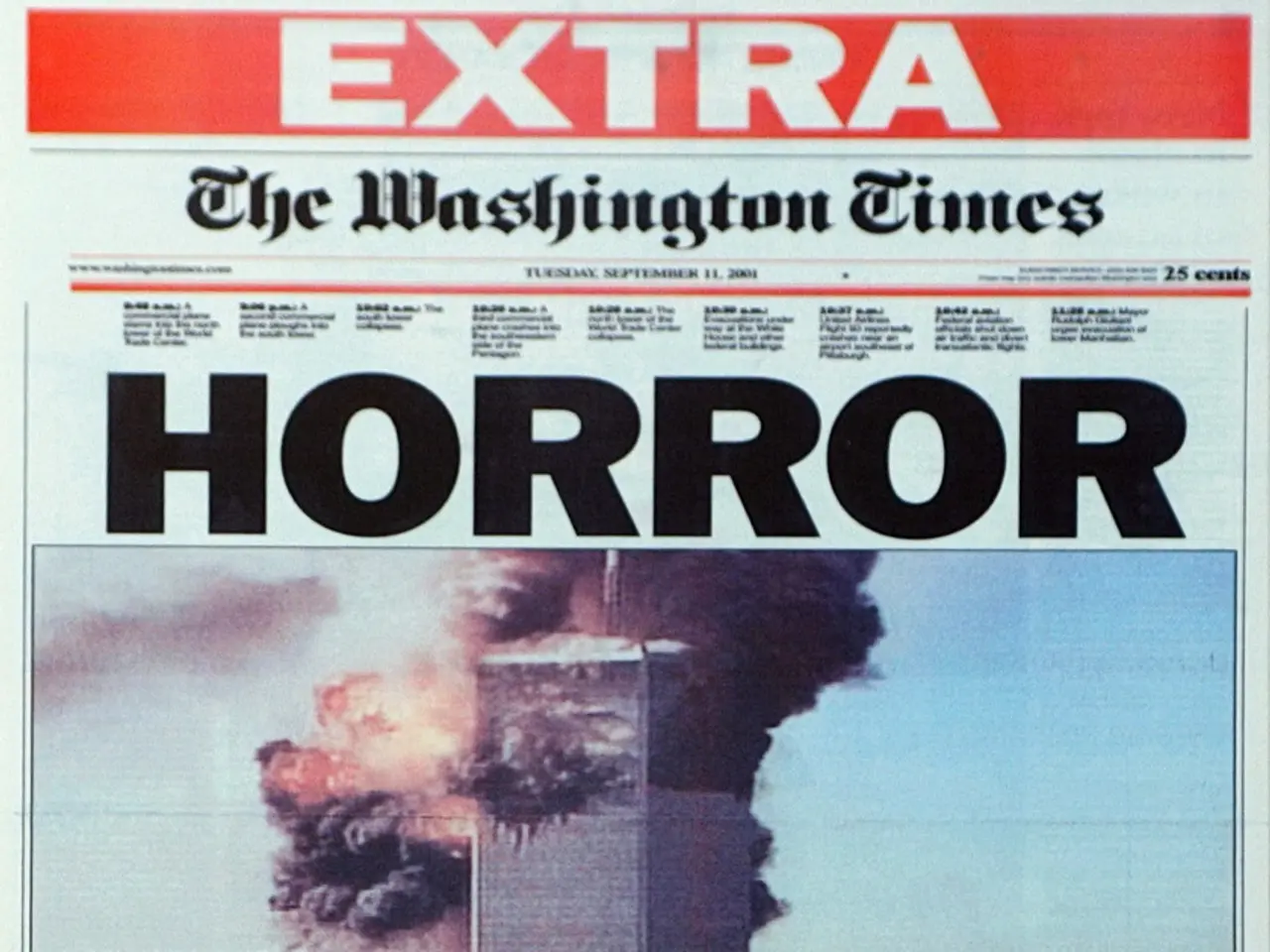United States democracy shift: Suppression of free speech and valuable insights from the fallout
In the United States, the landscape of free speech is undergoing significant changes, sparking concerns about censorship and the rise of propaganda.
Recent developments have raised eyebrows, with US President Donald Trump reportedly expressing a desire for TV stations that report negatively about him to lose their licenses. This statement, if taken at face value, could potentially undermine the fundamental principle of free speech.
Elsewhere, the tech world has seen a shakeup. Elon Musk, the new owner of Twitter, has been criticised for turning the platform into a propaganda machine. Musk's Twitter has been accused of favouring right-wing accounts and supporting openly radical-right parties and groups, leading to comparisons with Putin's Russia regarding the state of free speech.
The Ellison family, considered the rising media barons of the USA, are also making waves. Larry Ellison, co-founder and major shareholder of tech giant Oracle, is eyeing Warner Bros and TikTok. TikTok, with its 170 million users in the US, is an ideal platform for information and misinformation control. The Ellisons, owners of Paramount Skydance, are planning to acquire Warner Bros., a move that could significantly expand their media empire.
David Ellison, son of Larry Ellison, has already acquired media conglomerate Paramount, which includes film studios and TV stations like CBS, MTV, and Nickelodeon. However, Paramount announced in July that it would be ending "The Late Show With Stephen Colbert" next May, following Colbert's previous comments referring to his employer's payment to Trump as a "big fat bribe."
The Washington Post, owned by Jeff Bezos, has also been in the spotlight. Columnist Karen Attiah was fired for criticising the attack on Charlie Kirk. Meanwhile, the FCC under Brendan Carr is developing into a censorship agency, with ABC pulling the plug on Jimmy Kimmel's late-night show due to critical comedy related to Charlie Kirk.
Mark Zuckerberg, CEO of Meta, has also been under scrutiny. He has scaled back content moderation and fact-checking to appease Trump, and has also called for more "masculine energy." This move raises questions about the balance between free speech and responsible content on these platforms.
In the US, the far-right always wants the same thing: to abolish the fundamental right to free speech. They demand free speech, but their goal is to shift the boundaries of what's acceptable and use free speech as a smokescreen to allow only what they allow.
This trend is not unique to the US. In Germany, strategies and tactics focus on dismantling independent media, as shown in the current debate around the NDR and orchestrated attacks on journalists like Dunja Hayali.
As these developments unfold, it is crucial to maintain a vigilant eye on the state of free speech and expression in the USA and beyond. The future of open discourse hangs in the balance.
Read also:
- United States tariffs pose a threat to India, necessitating the recruitment of adept negotiators or strategists, similar to those who had influenced Trump's decisions.
- Weekly happenings in the German Federal Parliament (Bundestag)
- Southwest region's most popular posts, accompanied by an inquiry:
- Discussion between Putin and Trump in Alaska could potentially overshadow Ukraine's concerns






